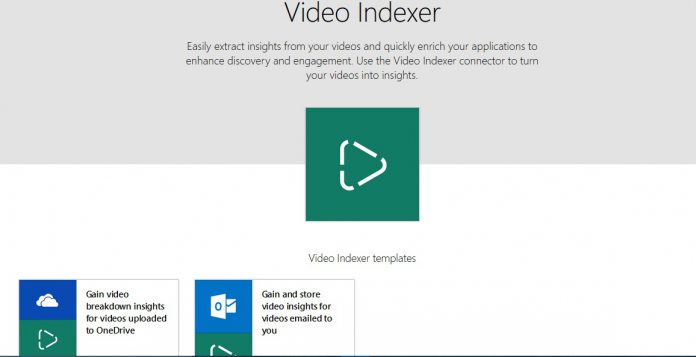Flow is a service that allows users to create automated workflows across applications. It can be described as an enterprise-oriented IFTTT competitor. By creating automated chains, users can get data collection, file synchronization, and notifications. Starting today, Microsoft Flow now supports Azure File Storage, Azure Video Indexer, Elastic Forms, and Plivo connectors. In an announcement, the company explains what each connector offers:
Azure File Storage – Microsoft Azure Storage provides a massively scalable, durable, and highly available storage for data on the cloud, and serves as the data storage solution for modern applications. Connect to File Storage to perform various operations such as create, update, get and delete on files in your Azure Storage account. Elastic Forms– Build advanced and interactive forms! Plivo – Plivo enables sending and receiving SMS & voice calls globally for businesses of all sizes. Video Indexer – Easily extract insights from your videos and quickly enrich your applications to enhance discovery and engagement. Use the Video Indexer connector to turn your videos into insights.
Actions and Triggers
The service is also receiving new action and trigger settings. Namely, Microsoft Flow now has a split on setting, a retry policy, and a single instance. Split On allows each item on a list to get its own Flow run. For example, a flow will run each time a trigger checks for tweets (or other items). Microsoft says this works by default, but users can disable it if they want to look at all list contents at once. With Retry Policy, users can configure the amount of times a flow will retry when there is a failure. While the retry amount is set to four, you can adjust the amount of retries or turn off the feature in settings. Finally, Microsoft has also created Pagination, a new setting that allows users to manage more records than are returned from a call in a service.




